|
Genres, Themes, Actors, and Directors:
- Barry Fitzgerald Films
- Cary Grant Films
- Dan Duryea Films
- Ethel Barrymore Films
- Gangsters
- Grown Children
- Jane Wyatt Films
- June Duprez Films
Review:
Clifford Odets directed and wrote the screenplay for this adaptation of a novel by Richard Llewellyn, best known as the author of How Green Was My Valley. This highly literate film is somber and atmospheric — and certainly a change of pace for Grant, who strongly related to the central role. It’s hard at first to care much for his unlikable character:
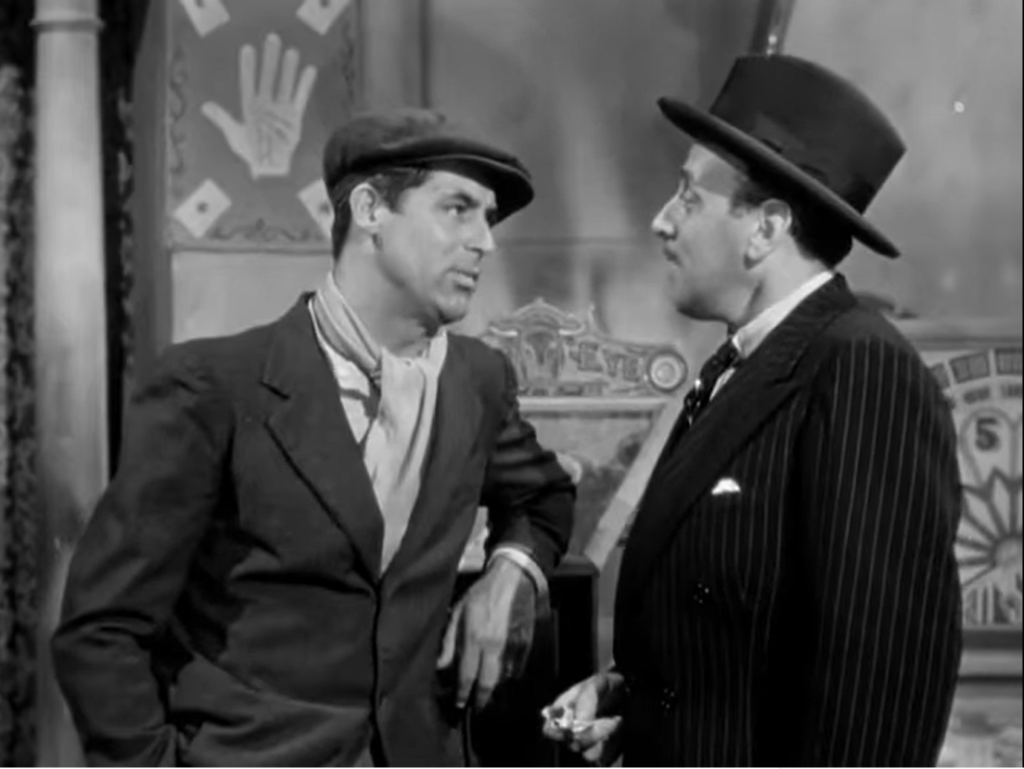
… and a bit challenging (though not impossible) to make sense of the heavy dialect spoken by Grant and the other characters. Eventually, however, we become drawn into the hard-scrabble world portrayed here, with individuals seemingly limited to either eking by on minimal wages or turning to crime — though there is plenty of compassion and camaraderie on display as well.
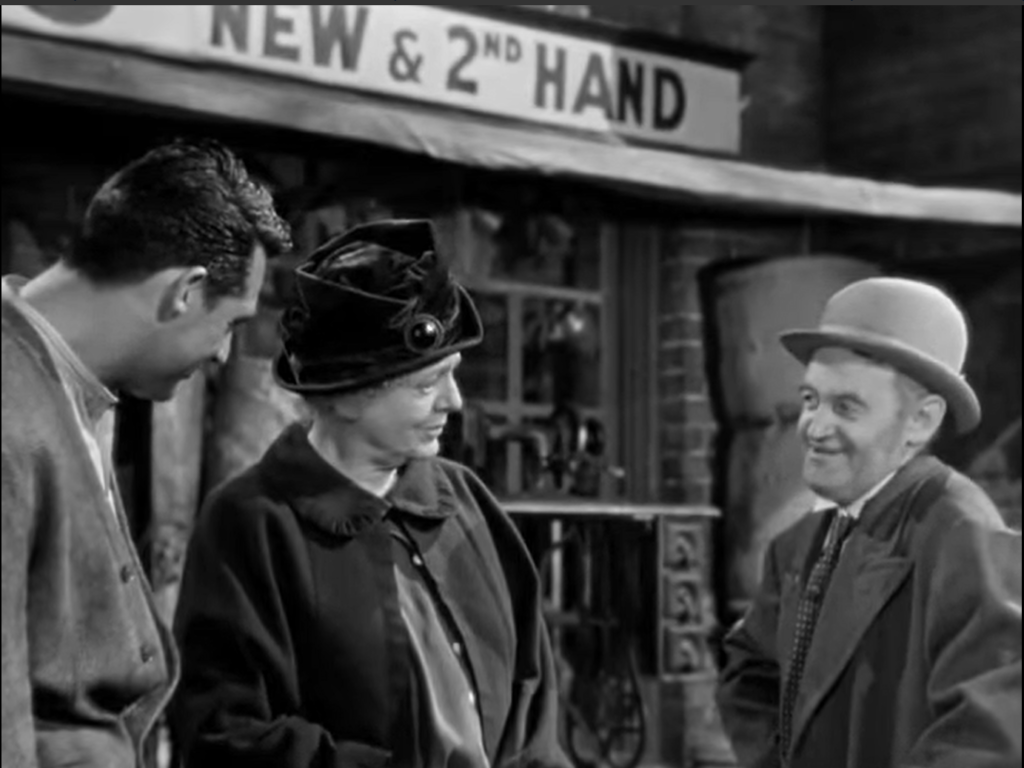
I’m particularly fond of the subtle performances Odets elicits across the board — not just from Oscar-nominated Grant and Oscar-winning Barrymore, but from the cast of supporting characters, including Wyatt in a tiny but pivotal role as a musician waiting patiently (though not at all pathetically) in the wings for Grant if he wants her:
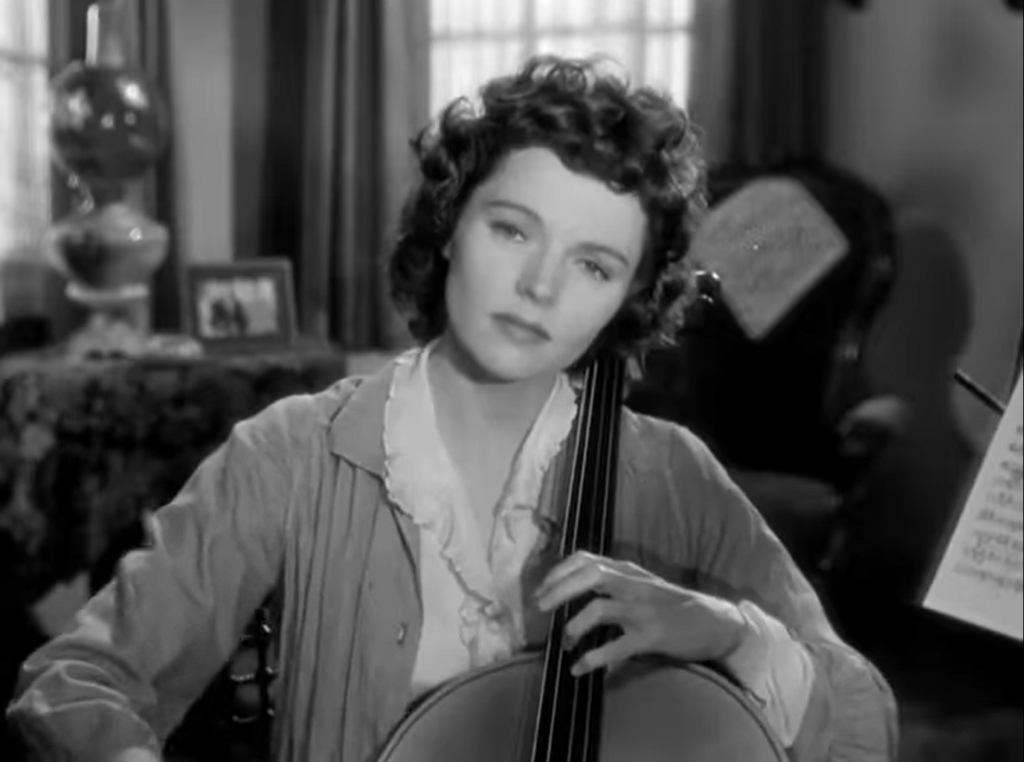
… Coulouris as a quietly sinister gangster who refuses to give up Duprez:
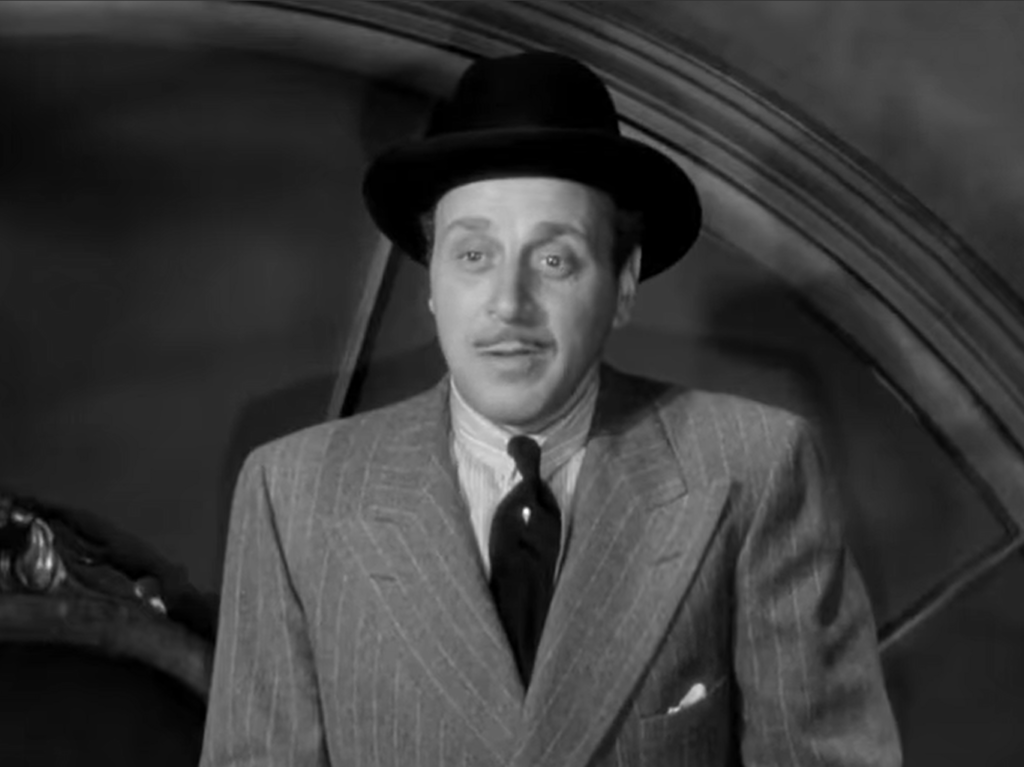
… and Duprez as an emotionally complex “moll” whose fate we remain invested in:
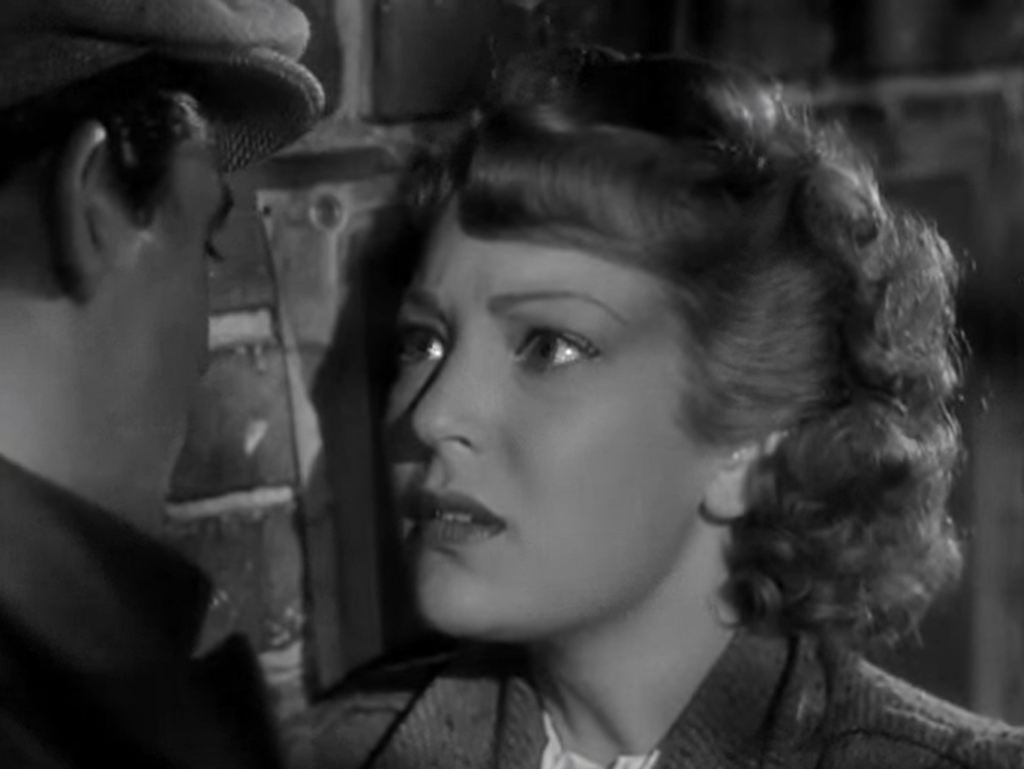
While I can’t quite recommend this depressing tale as must-see, it’s well-crafted and worth a look.
Notable Performances, Qualities, and Moments:
- Cary Grant as Ernie Mott
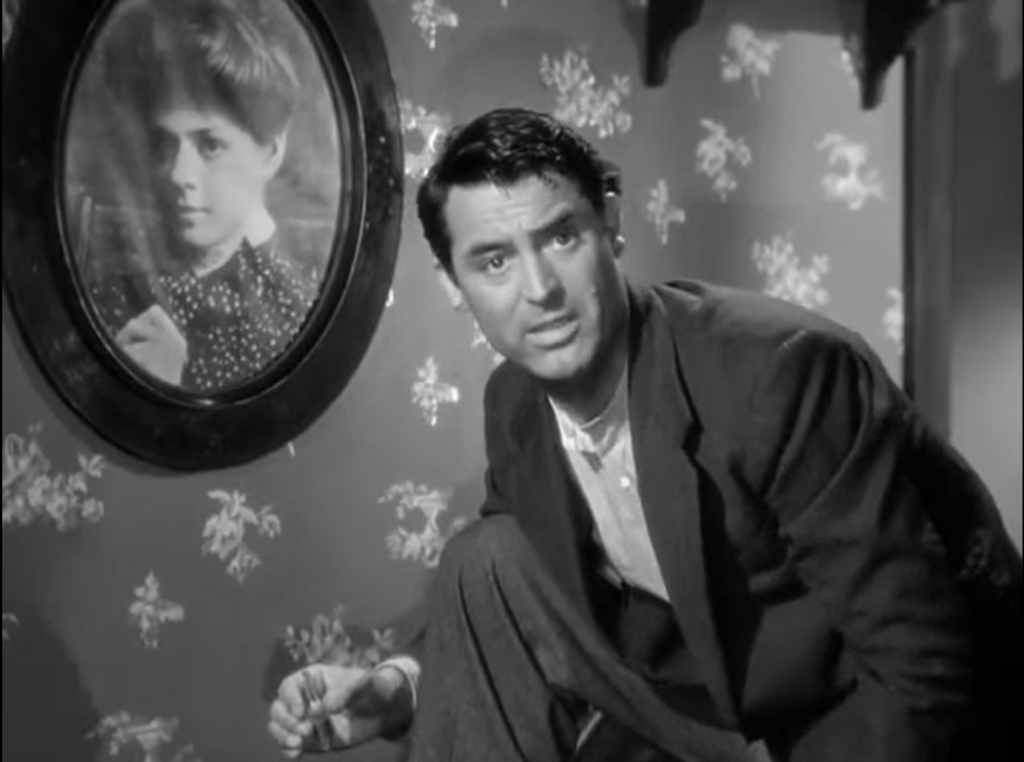
- June Duprez as Ada Brantline
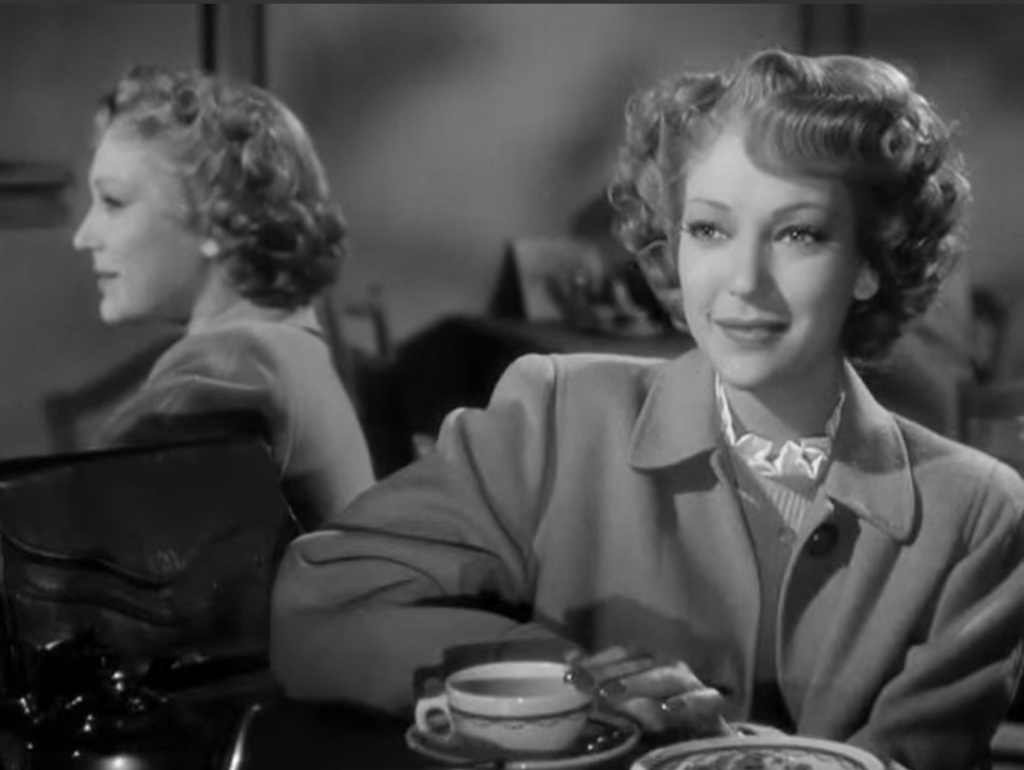
- Ethel Barrymore as Ma Mott
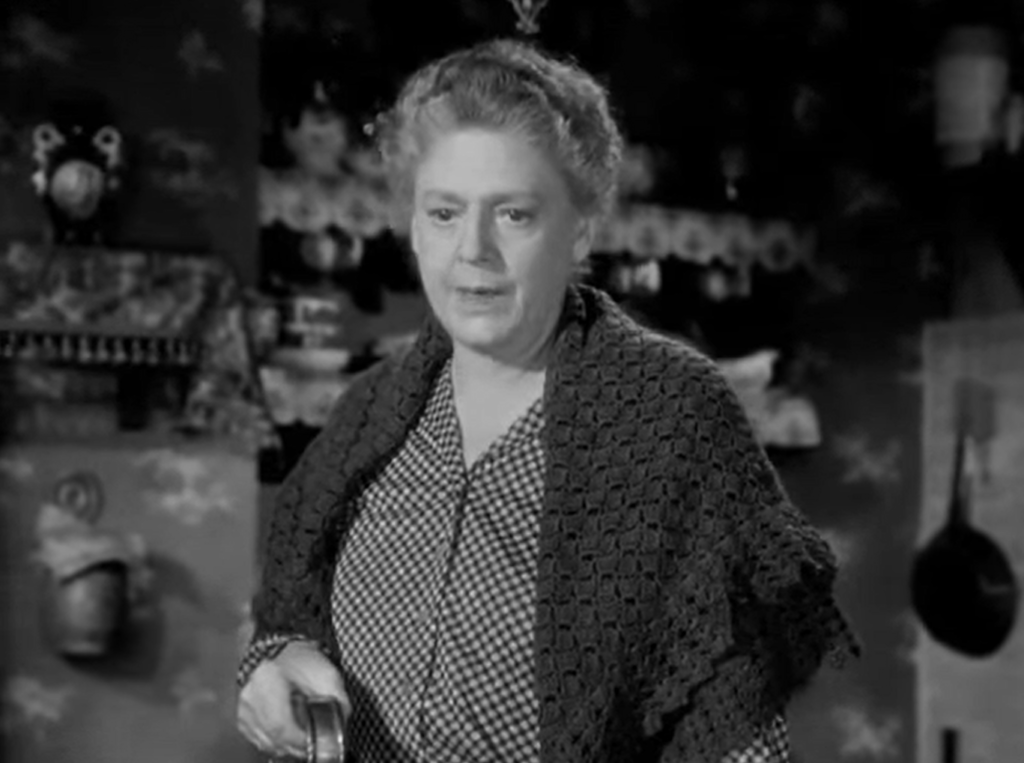
- Jane Wyatt as Aggie Hunter
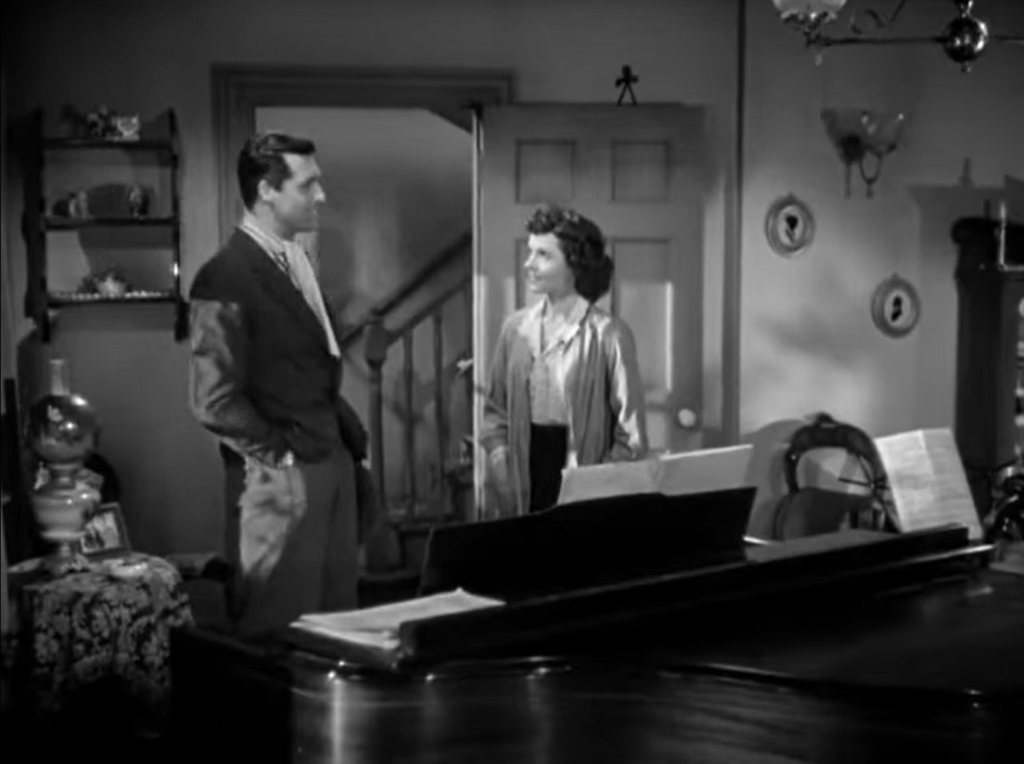
- George Coulouris as Jim Mordinoy
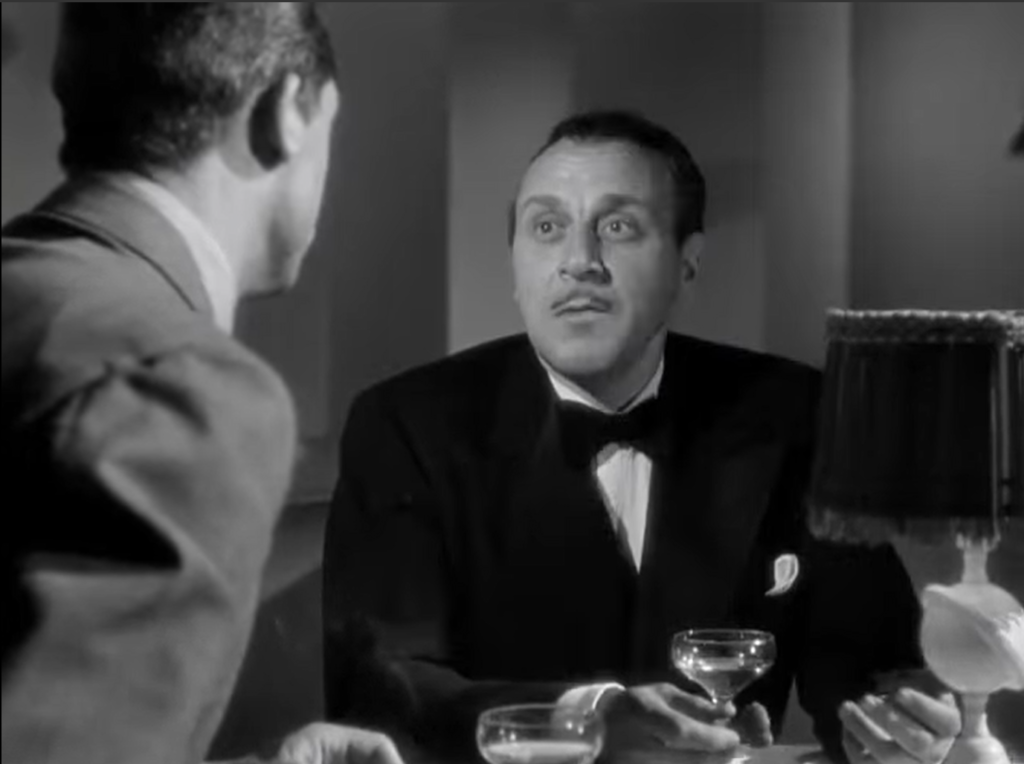
- Atmospheric cinematography
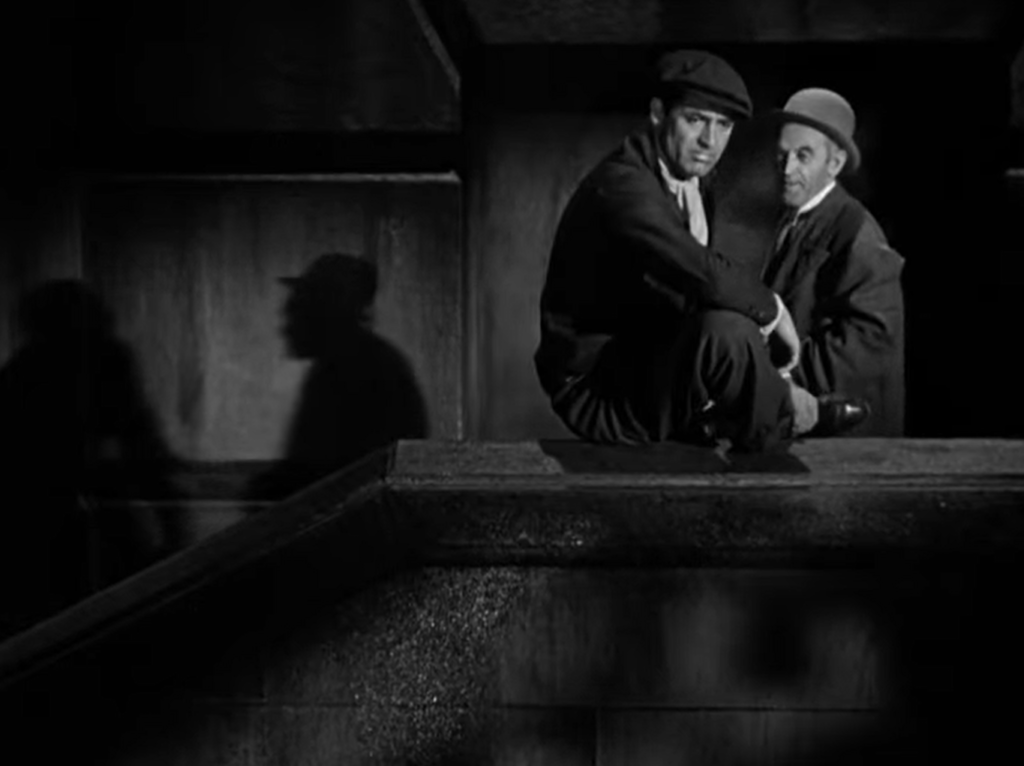
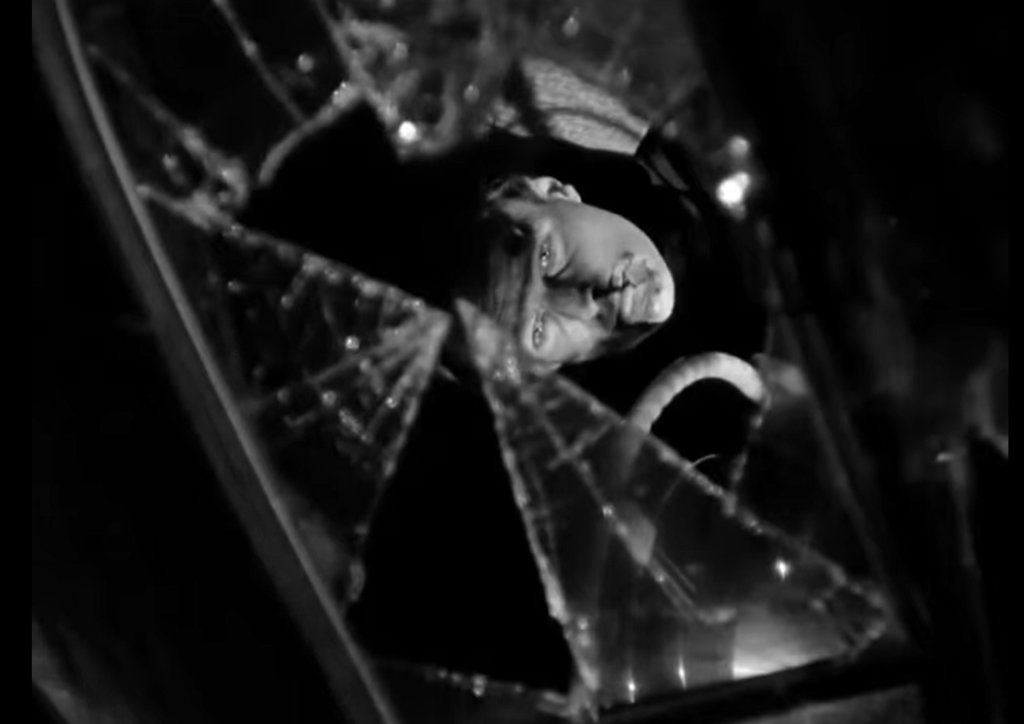
Must See?
No, but it’s worth a one-time look.
Links:
|
One thought on “None But the Lonely Heart (1944)”
Agreed; not must-see, though I would recommend it for its strong points. As per my first-viewing (7/2/20) post in ‘The ’40s-’50s in Film’ (fb):
“Someday you’ll know I’m your only friend.”
‘None But the Lonely Heart’ (1944): Richard Llewellyn published this film’s source material a few years after his big hit ‘How Green Was My Valley’. My guess is that, since ‘How Green’ proved successful as a film, Clifford Odets got the notion to snap up ‘None’ for his debut as a director. Odets also did the adaptation – and it’s maybe the most un-Odets adaptation imaginable. (Every once in a while you can vaguely hear what seems like an Odets turn-of-phrase.) Still, it’s not hard to see how Odets could relate to the main character – Ernie Mott, played by Cary Grant. Odets usually dealt with tough leading characters; Grant didn’t usually play such characters – so here he gets a chance to bite into something with more… bite.
We’re in a pre-WWII London that seems more like Scorsese’s ‘Mean Streets’ and the area seems to be somewhat ruled by a mob (as well as some other underground operators) that regular people don’t want any part of… until they feel forced to ‘cooperate’, one way or another. Both Grant and his mother (Ethel Barrymore / Oscar winner) fall prey.
I haven’t read the novel – and this is one of those instances where you get the sense that, even though everything is pretty clear, a little more backstory (esp. for Grant and Barrymore) could have come in handy. As well, it’s a little frustrating watching Grant spend so much time trying to cinch his stormy relationship with the difficult Ada (June Duprez) when the much more sensible Aggie (Jane Wyatt) couldn’t be easier to deal with.
A very moody but overall satisfying film.